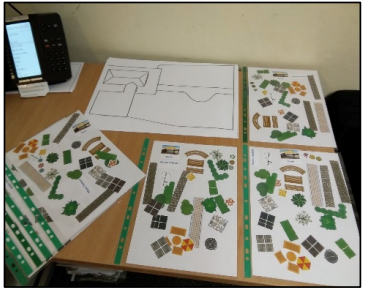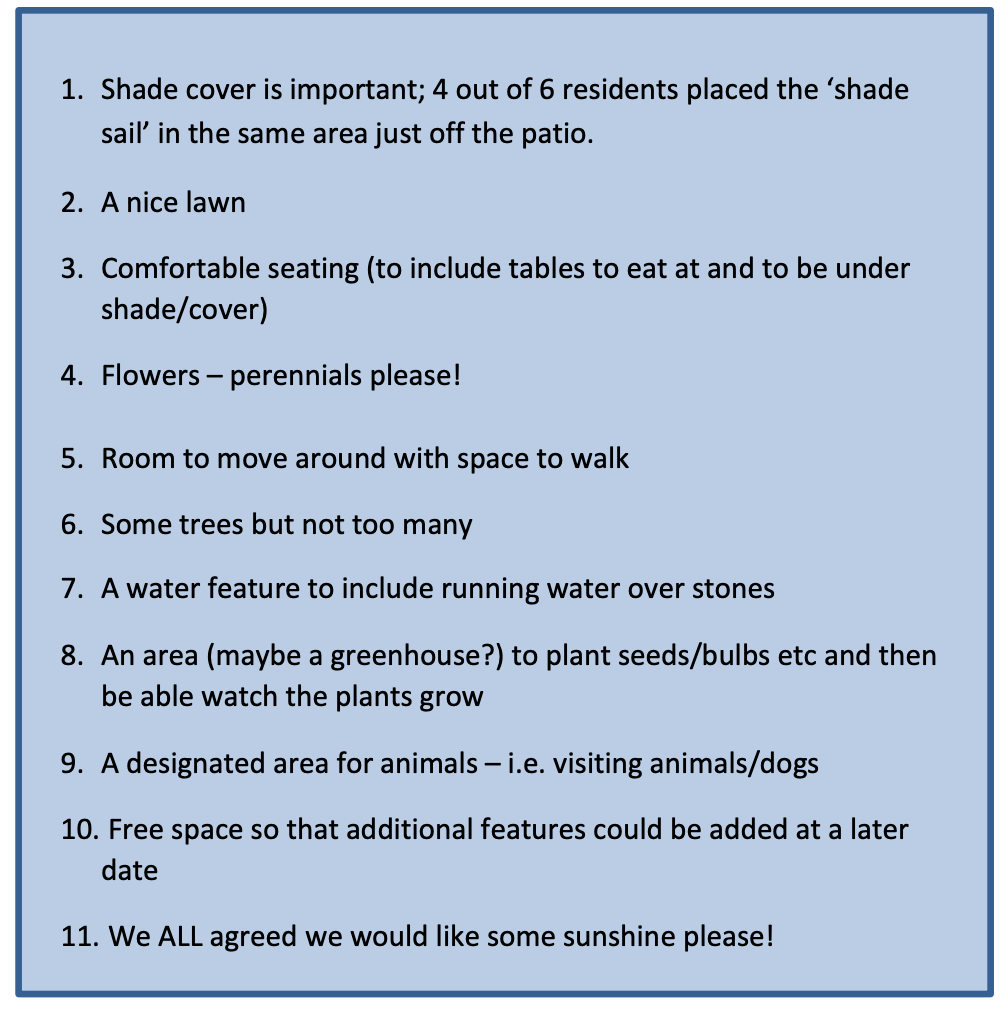Four care homes participated in the CHARM research project, conducting two mini-research projects each. This blog shares the experiences of Hallmark Care Home’s Anya Court Care Home in Rugby and their whole journey through the CHARM project.
Thanks go especially to Lifestyles Lead, Sue Mitchell, Home Manager Michelle Sides, Dementia Care Manager Cheryl Jones, and Dementia & Wellbeing Lead for Hallmark Care Homes April Dobson for their work as part of the Anya Court Research Working Group.

Stage 1: Find out, plan and prepare
The team at Anya Court was originally very different to the one that ended the project! Sue and April were originally joined by a different home manager, a lead carer, the hospitality lead and a family member. This team planned to implement a project called “home in time for tea” exploring the impact of switching the “big” meal of the day from lunchtime to evening time and introducing food preparation activities for the residents to get them more involved. It was hoped this might improve resident well-being and sleep. The team developed their own measurement tools and ran awareness days to let everyone know what would be happening.
Stage 2: Act and make things happen
In February 2020 they set about implementing the change and collecting data. And then coronavirus hit!
Whilst the home managed to carry on collecting data (which was an amazing feat, well done Sue!) the original plans for the change were affected because the activities to involve the residents (a big part of the switch) were just not possible under social distancing and infection control requirements.
You can read about this project, the team’s progress and some preliminary results here:
When Anya Court were ready to re-engage with CHARM in late 2020, a lot had changed. They had a new manager, a dementia care manager who was due to start in the new year and only Sue left from the original team who had been waving the flag for CHARM valiantly by herself for several months! Sue, Michelle and April got together and discussed what they would like to do with their remaining CHARM project whilst they waited to be able to restart the mealtimes project when restrictions were lifted.
They were very clear that “we don’t want to hear the C-word!” (COVID) They wanted to focus on something that would help their team move on from the last 8 months. In particular, as a new manager, Michelle had lots of plans for change – particularly in relation to improving dementia care in line with Hallmark’s dementia care strategy and with a new dementia care manager joining the team (Cheryl). We therefore helped them develop a research project that would involve the team in the planned changes and help them keep track of what was working and not working.
The new research was called: “What do you need to carry out your role and improve quality for life for residents living in the dementia community”
Stage 3: Study, watch and listen
The research working group designed an in-depth questionnaire that asked their team members about their thoughts and experiences of the following parts of their work:
- feeling valued at work
- feeling involved and empowered at work
- training and support
- relationship-centred care
The team completed this questionnaire and then the findings from this were analysed to create a picture at the start of the research. The findings were also used to influence the action plan for change which would be implemented over the next 6 months. The survey would then be completed again after 3 months and 6 months to see what had changed for the team, together with some focus groups with the team.
Stage 4: Reflect, think, discuss and change
After 3 months, the project produced A LOT of data and there was a definite feeling that things had changed for the better on the dementia community. As one of the focus group participants said:

When the team compared the findings from the initial picture with the picture after 3 months this was confirmed. Improvements had occurred, but there was still some progress to be made (as they’d expected half way through their 6 month plan).
The headline findings at 3 months were:
- Our action plan has had a modest effect on improving team members’ feelings and experiences of being valued in their work. This is not as dramatic as we hoped, but this perhaps highlights that making sure people feel valued for their work is an ongoing individual issue
- Our action plan has had a modest impact on improving team members feelings and experiences of feeling involved and empowered. This has demonstrated that improving these areas is harder than we hoped, but we are making progress.
- Our action plan has been successful in improving team members’ feelings and experiences of training and support. Informal every day support appears to have been particularly improved, appreciated and impactful.
- Our action plan has been successful in improving relationship centred care, especially with regards to the experiences of residents

The team wrote this project up as a final report and designed two “you said, we listened” posters to communicate their progress to the team.
But they’re not finished! The research group have developed an action plan for the next 3 months and plan to run the questionnaire and focus groups again at 6 months as planned. They’ve definitely caught the research bug.
Well done everyone at Anya Court!




